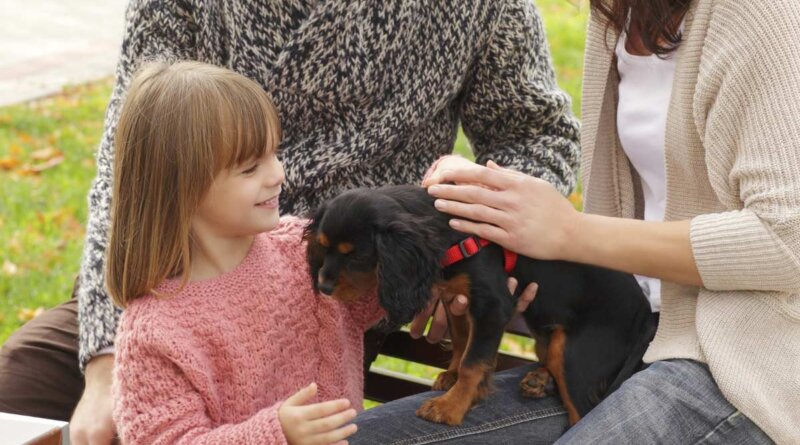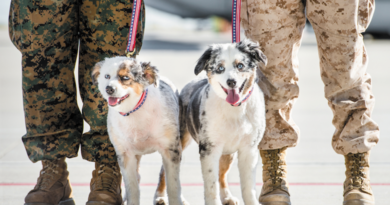Best Dogs For First Time Owners: 13 Breeds To Consider
Introducing a new furry family member is a delightful and transformative experience. The sheer joy of expanding one’s four-legged family is immeasurable, particularly for those venturing into dog ownership for the first time. The success of this new companionship hinges significantly on the choice of the canine breed.
Certain dog breeds are better suited for novice owners. Optimal choices for beginners are dogs that are easily trainable, possess good social skills, exhibit stability, and are not predisposed to severe health issues. Not every breed is equally easy to train, care for, or engage with. Therefore, selecting low-maintenance breeds is a prudent decision for first-time dog owners.
Owning a dog entails a host of responsibilities, ranging from daily care such as feeding, exercise, and attention, to long-term commitments like regular veterinary visits, dental care, and grooming. The financial investment is substantial, as is the commitment of time and space. Choosing the right breed is just one aspect of preparing for dog ownership. Let’s explore 13 dog breeds that are particularly well-suited for beginners.
Best Dog Breeds for First-Time Owners
We are excited to present 13 ideal dog breeds for novice owners. These delightful breeds, listed alphabetically, make for adorable and unforgettable companions for first-time dog owners. Low-maintenance dogs come in various shapes and sizes, and it’s essential to consider that some breeds may be more compatible with specific lifestyles. Let’s delve into the profiles of these charming breeds.
-
Basenji:
- Originating from the Congo, the Basenji is an intelligent and curious breed often referred to as the “barkless dog” due to its unique vocalizations.
- Energetic and medium-sized, the Basenji requires daily mental and physical stimulation, making it suitable for various living environments.
-
Bernedoodle:
- A crossbreed between a Bernese Mountain Dog and a Poodle, the Bernedoodle is playful, gentle, and sheds minimally.
- Known for its teddy bear appearance, this designer breed is a popular choice for those seeking a family-friendly and hypoallergenic companion.
-
Bichon Frise:
- The fluffy and affectionate Bichon Frise, weighing between 7 and 12 pounds, hails from France and thrives on human attention.
- Known for its cheerful personality, the Bichon Frise is a great choice for apartments and small homes, requiring daily exercise and interaction.
-
Cavalier King Charles Spaniel:
- Characterized by a sweet-natured disposition, this breed, also known as the Comfort Cavalier, is ideal for families with children and other pets.
- Compact in size, ranging from 13 to 18 pounds, the Cavalier King Charles Spaniel has a lifespan of 12 to 15 years.
-
Cockapoo:
- A popular Doodle mix, the Cockapoo is a well-balanced, calm, and friendly breed that thrives on human company.
- With a lifespan of 14 to 18 years, Cockapoos are known for their trainability and adaptability to various living spaces.
-
Golden Retriever:
- A beloved choice for families, Golden Retrievers are known for their easygoing temperament and adaptability.
- With a lifespan of 10 to 12 years, these lovable companions are highly trainable and get along well with children, other dogs, and even cats.
-
Goldendoodle:
- A delightful mix of Poodle and Golden Retriever, the Goldendoodle boasts a teddy bear appearance and a friendly, energetic demeanor.
- Available in standard and miniature sizes, Goldendoodles are known for their intelligence and suitability for family life.
-
Greyhound:
- Despite their incredible speed on the racetrack, Greyhounds are affectionate, patient, and low-energy companions in daily life.
- With a lifespan of 10 to 14 years, these agile dogs require early training and socialization, excelling in multi-pet households.
-
Labrador Retriever:
- A low-maintenance choice for first-time owners, Labrador Retrievers are known for their friendliness, intelligence, and versatility.
- With a size ranging from 55 to 80 pounds, Labs are excellent companions for active individuals or families.
-
Papillon & Papillon Mixes:
- The dainty Papillon, meaning “butterfly” in French, is recommended for its companionship and adaptability to small homes.
- Weighing between 5 and 10 pounds, Papillons have a lifespan of 14 to 16 years and thrive on human interaction.
-
Poodle:
- Originating from Germany, Poodles are highly intelligent and energetic, coming in toy, miniature, and standard sizes.
- As hypoallergenic and low-shedding dogs, Poodles are adaptable companions known for their trainability and social nature.
-
Shih Tzu:
- Once the prized companion of Chinese emperors, the Shih Tzu is a toy-sized dog with a unique appearance and long, flowing hair.
- Thriving in apartments, Shih Tzus require daily walks and patient, positive training to become unforgettable pets.
-
Yorkshire Terrier:
- Known for their adorable appearance and intelligence, Yorkshire Terriers (Yorkies) are suitable for first-time owners willing to invest in training.
- With a size of four to seven pounds, Yorkies have a lifespan of 13 to 16 years and are adaptable to apartment living.
Tips for First-Time Dog Owners
-
Financial Commitment:
- Be prepared for a substantial financial commitment, covering adoption fees, supplies, veterinary care, grooming, training, and other ongoing expenses.
-
Consider Space:
- Match the dog breed to the available space, ensuring that the size and activity level of the dog align with your living situation.
-
Activity Level and Schedule:
- Choose a breed that matches your activity level and daily schedule to provide appropriate care, especially if you are away from home frequently.
-
Exercise Needs:
- Recognize the exercise requirements of the chosen breed, ensuring they receive adequate physical activity for their well-being.
-
Shedding Considerations:
- Understand the shedding characteristics of the breed and be prepared for grooming needs, particularly if allergies are a concern.
-
Adoption Source:
- Decide whether to adopt from a breeder, a shelter, or a breed rescue, considering the ethical implications and the availability of the preferred breed.
Getting Ready for Your New Puppy
Preparing for a new canine family member involves acquiring necessary supplies, establishing a relationship with a veterinarian, and selecting appropriate nutrition. Essential supplies include crates, beds, leashes, bowls, toys, and grooming tools. Finding a trusted veterinarian ensures that your puppy receives essential vaccinations and regular care. Additionally, considering professional training or online courses can aid in preparing for a smooth transition.
In conclusion, selecting the best dog for first-time ownership is a thoughtful process that involves understanding the specific needs and characteristics of both the owner and the chosen breed. By considering factors such as size, temperament, and maintenance requirements, novice owners can embark on a rewarding journey with




